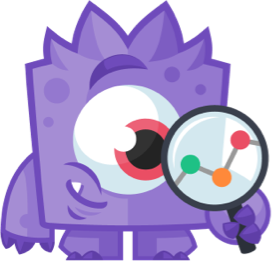In recent years, Artificial Intelligence (AI) has emerged as a transformative force across various sectors, reshaping traditional workflows and enhancing productivity. Industries worldwide are leveraging AI to automate processes, optimize decision-making, and improve customer interactions. This article explores the latest trends, technical insights, and real-world applications of AI in finance automation and chatbot development, making a compelling case for the integration of AI across diverse industrial domains.
The automation potential AI offers stands as a monumental development, especially in finance. With the ever-growing volumes of data and the need for swift, accurate processing, organizations are turning to AI-driven solutions to improve operational efficiency. According to a recent report from McKinsey & Company, companies that incorporate AI into their finance functions can see a productivity boost of up to 20%.AI tools can manage tedious data entry tasks, reconcile accounts, and even predict financial trends, allowing finance professionals to focus on strategic decision-making and analysis.
Financial institutions are utilizing AI algorithms to analyze transaction patterns and identify fraudulent behavior in real-time. Machine learning models learn from historical transactional data, enabling them to flag suspicious activities swiftly. This not only protects companies from potential losses but also enhances customer trust in financial services. IBM’s Watson, for example, is pioneering AI applications by employing advanced analytics to combat fraud and financial crimes effectively.
Another significant aspect of AI in finance is its contribution to enhancing customer service through intelligent chatbots. The adoption of AI chatbots is becoming increasingly prevalent in financial institutions, responding to customer inquiries and providing insights around the clock. These AI-driven chatbots help in personalizing user experiences by learning from previous interactions and adjusting their responses accordingly. A report by Business Insider indicates that by 2024, chatbots will handle 85% of all customer interactions, significantly reducing operational costs for businesses.
One such industry application of AI in finance is in robo-advisors, which automate investment management services. These digital platforms use algorithms to create and manage a diversified portfolio based on individual user preferences and risk tolerance, democratizing access to investment advice. According to Statista, the global robo-advisory market is expected to reach $2.45 trillion by 2024. This surge showcases significant financial institutions’ growing trust in AI-backed solutions to enhance customer engagement.
Implementing AI models in finance is not merely about technology; it encompasses cultural shifts and the upskilling of the workforce. Organizations must foster a culture that embraces innovation, ensuring employees have the skills necessary to work alongside AI systems. As Deloitte emphasizes, continuous training and development will be crucial in enabling professionals to harness AI’s capabilities, ultimately creating a dynamic work environment where innovation thrives.
**AI Chatbot Development: Revolutionizing Customer Experience**
AI chatbot development stands as a crucial component in revolutionizing customer experience across industries. These virtual assistants not only streamline workflows but also provide consistent and efficient communication between businesses and their clients. AI-driven chatbots are designed to understand natural language, respond to inquiries promptly, and provide relevant information based on user intent.
In the fast-paced financial services sector, chatbots are transforming customer engagement. By automating inquiries related to account balances, transaction histories, and payment information, businesses can reduce the workload on human agents. A study conducted by Juniper Research projected that chatbots could save financial institutions over $7 billion per year by 2023, making them an attractive investment for companies looking to cut costs and enhance service delivery.
Furthermore, AI chatbots are becoming increasingly sophisticated, aided by advancements in natural language processing (NLP) and machine learning capabilities. The introduction of tools such as Google’s Dialogflow enables developers to build conversational interfaces that can seamlessly integrate into existing systems. By utilizing sentiment analysis, chatbots can gauge customer emotions and adjust their responses accordingly, creating a more engaging user experience.
The implications of AI chatbot development extend beyond customer support. Financial institutions are employing chatbots for risk assessment and compliance checks. These virtual assistants can analyze customer data, flag irregularities, and even assist in submitting documentation required for regulatory compliance, ensuring organizations stay ahead in meeting legal standards.
In practice, several prominent financial institutions have adopted AI chatbots to improve customer service. Bank of America’s Erica is a prime example, allowing customers to transfer funds, access statements, and receive personalized financial advice—all through voice or text commands. Such applications underscore the versatility and effectiveness of AI chatbots in enhancing relevant customer touchpoints, ultimately driving retention and loyalty.
**The Future of AI in Industries: Trends and Solutions**
As industries continue to embrace AI technologies, various trends are shaping the future landscape. For instance, the integration of AI with other emerging technologies, such as blockchain and the Internet of Things (IoT), is unlocking new opportunities for innovation. In finance, this synergy could lead to enhanced data security, greater transparency, and improved client interactions.
Moreover, companies are harnessing AI to derive actionable insights from big data. Advanced analytics and machine learning algorithms allow organizations to predict market trends and understand customer behavior on an unprecedented scale, enabling them to tailor their offerings accordingly. Personalization is becoming a cornerstone of competitive strategy, and AI is at the forefront of enabling this shift.
However, with great power comes great responsibility. The ethical implications surrounding AI deployment must be a focal point for organizations. Ensuring data privacy, preventing algorithmic bias, and maintaining transparency in AI decision-making processes are pivotal. As research published in the Journal of Business Ethics emphasizes, responsible AI deployment will be essential in building customer trust and sustaining business growth.
**Conclusion: Paving the Way with AI Technologies**
In conclusion, the integration of AI in industry—especially in finance automation and chatbot development—represents a defining moment in the evolution of business operations. Companies that prioritize adopting AI technologies can expect transformational changes in their workflows, customer interactions, and overall productivity. By continually exploring innovative applications and fostering a culture of adaptability and ethical practices, organizations can unlock the full potential of AI, ensuring a prosperous future in an increasingly digital landscape.
Sources:
1. McKinsey & Company. “The state of AI in business 2023.” Accessed October 2023.
2. IBM Watson. “AI Solutions in Finance.” Accessed October 2023.
3. Business Insider. “Chatbots Will Handle 85% of All Customer Interactions by 2024.” Accessed October 2023.
4. Statista. “Global Robo-Advisory Market Size from 2018 to 2024.” Accessed October 2023.
5. Deloitte. “The AI Workforce: Preparing for an Evolving Future.” Accessed October 2023.
6. Juniper Research. “Cost Savings from Chatbots in Banking.” Accessed October 2023.
7. Google Dialogflow. “Conversational Interfaces for Financial Services.” Accessed October 2023.
8. Journal of Business Ethics. “Ethics in AI: A Business Imperative.” Accessed October 2023.
With AI paving the way for unprecedented advancements in industry, the future appears promising for sectors that embrace innovation and prioritize the ethical deployment of these technologies.


























